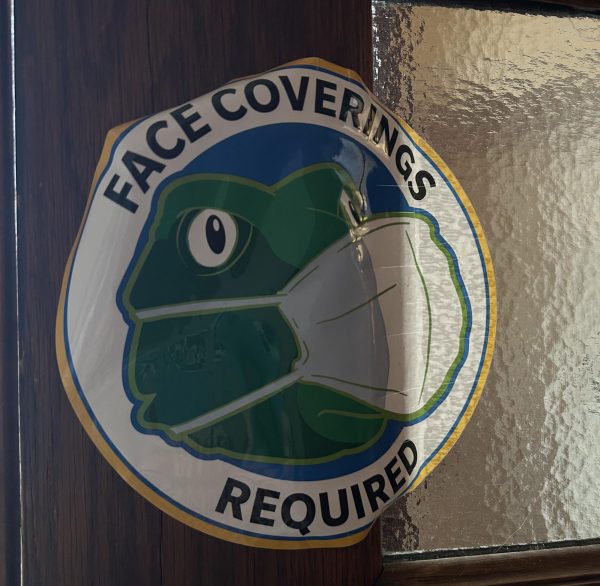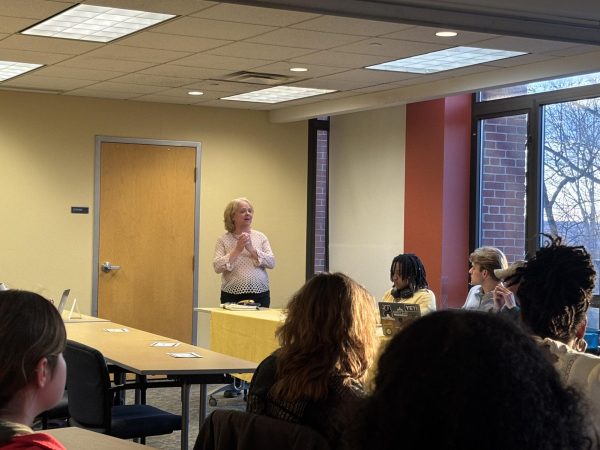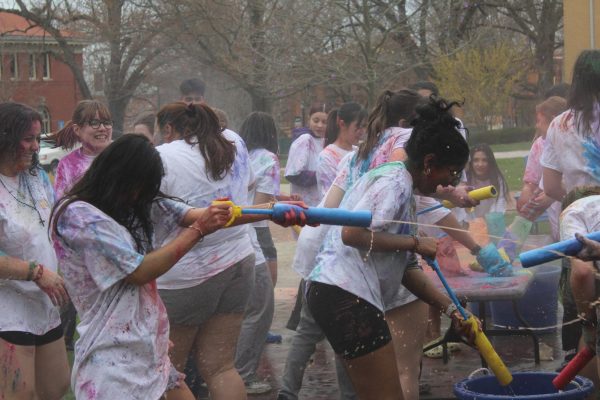Email challenge aims to promote student and staff well–being
Allegheny faculty, staff and students were invited by the provost’s office and Year of Mindfulness organizers to participate in a challenge from Jan. 23 through Jan. 27 to not correspond through email regarding information about school or homework from 7 p.m. to 7 a.m., leaving room for a 12-hour break from work.
Jennifer Hellwarth, associate professor of English and co-organizer of the Year of Mindfulness, came up with the idea for the challenge, according to Sharon Wesoky, professor of political science and a fellow organizer. It was then brought up to Provost and Dean of the College Ron Cole last semester, who supported the idea and put it into action by asking all employees to participate.
“Email is something that takes over our whole life, right?” Wesoky said. “Which means there’s no divide between our work day and our non-work day time.”
Wesoky said this challenge is something that should continue in individuals’ lives. She said they should choose times that fit within their own schedules, or—if it becomes a permanent idea—work their schedules to include this separation for work-related email.
The challenge, according to Wesoky, had several goals. One is for people to not have to feel as though they have to work all the time. Another is to emphasize the importance of being able to focus and concentrate on things in individuals’ lives besides work.
Many studies have found that multitasking has a negative impact on productivity, according to Wesoky.
One of the outcomes Wesoky hopes to see from the challenge is that students will learn how to become less distracted when focusing on their work. She also said she would like to see them have a better understanding of a good work-life balance.
Jane Ellen Nickell, college chaplain, is part of the Year of Mindfulness planning team, and participated in the challenge.
“I think the whole Year of Mindfulness, we’ve been trying to get people to just sort of step back and take more of a breather, and to find more of a schedule in their days to just kind of let things settle in instead of constantly putting in more information. And so I think the idea of stepping away from your email for 12 hours really asks us to unplug ourselves from work or from our classes and do something else,” Nickell said.
Nickell said she believes it is harder for students to accomplish this challenge because of how many different things they have going on. She said students may have lots of homework, activities, clubs, work and other obligations.
Nickell suggested that students set up their own time to step away from not just their email, but anything work related.
“I think the idea of unplugging is a good one,” says Nickell.
Nickell said she hopes those at Allegheny will see the benefits from the challenge and will implement it in their own lives for times that work for them, even if it is not a 12-hour window every day.
“We all have a workload and different ways in which we manage it,” Hellwarth said.
Hellwarth said she would respond to an urgent email outside of the time frame she sets for herself to not answer emails. She said before email, if a situation was urgent, one would have to knock on someone’s door.
“I think the idea is to help people think more consciously about just general use of email,” Hellwarth said.
There are studies regarding emails that say constantly checking them throughout the day distracts us from our work because we cannot multitask, according to Hellwarth.
“We do become addicted to our phones because it starts to give us some sense that, ‘Oh, somebody’s contacting me, it makes me feel good for a moment,’” Hellwarth said.
Hellwarth said would be good if everyone could have a day in which they disconnect from social media and electronics.
“[The Email Challenge] is about cultivating awareness about the way in which we communicate with each other and cultivate awareness when we think about how we spend our time, and can we become less mindless and more mindful,” Hellwarth said.









